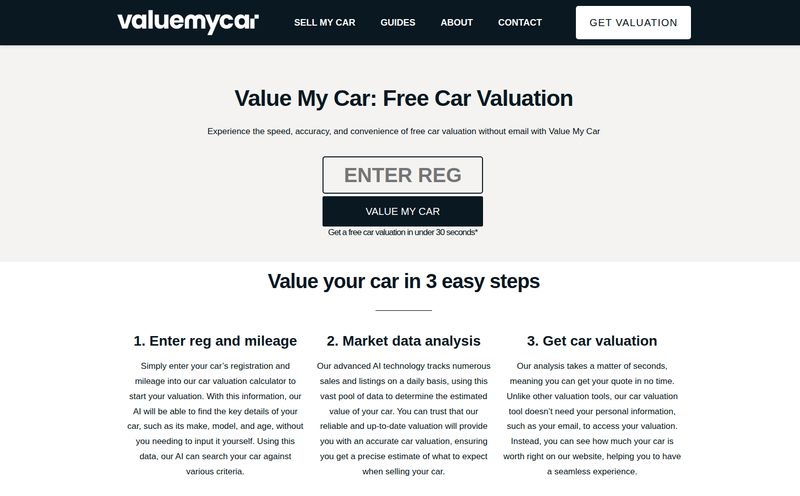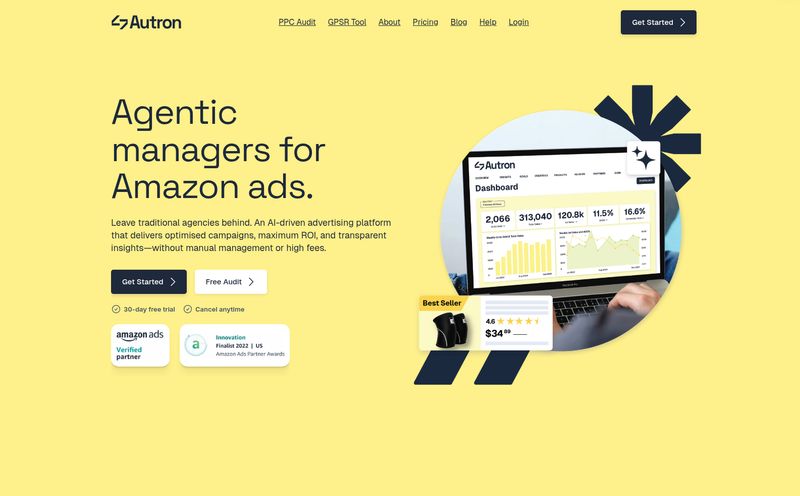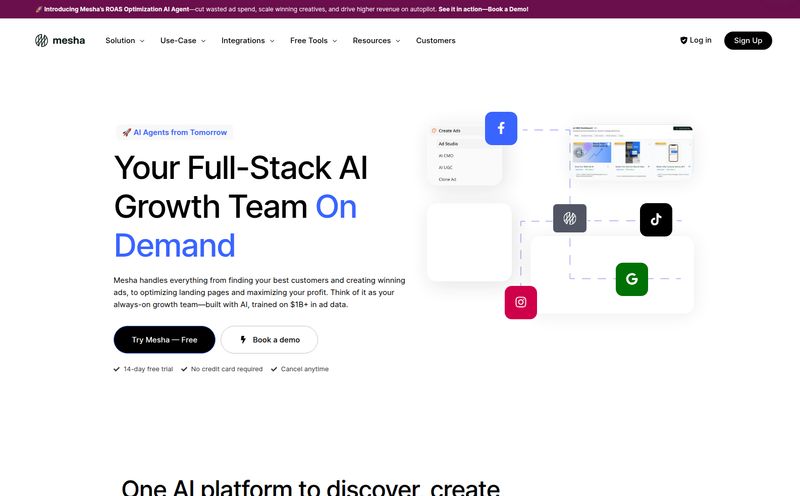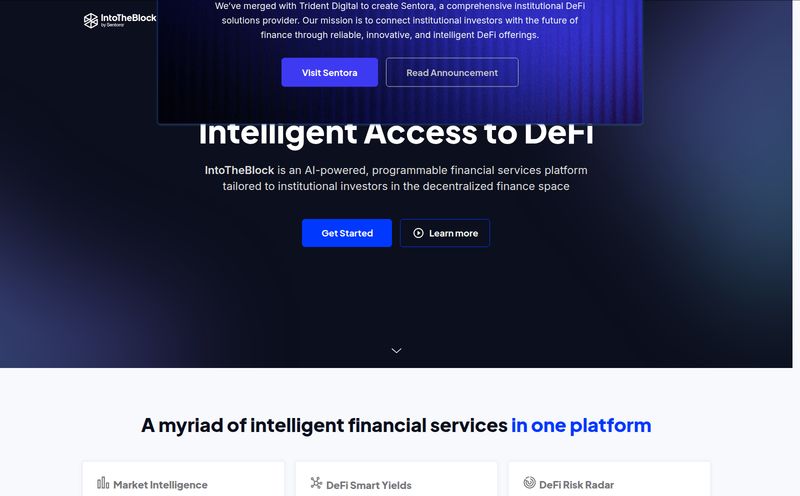For years, I've watched companies wrestle with it. It’s this massive, sprawling beast – a tangled web of spreadsheets, rogue invoices, and procurement processes that feel like they were designed in the Mesozoic Era. You know the drill. You spend months on an RFP for a complex service, only to feel like you're still just throwing darts at a board, hoping you picked the right vendor at a decent price. It's a grind. And honestly, it’s where money goes to die a slow, quiet death.
So when a platform like Globality comes along, flashing words like "AI-driven," "autonomous sourcing," and "guaranteed savings," my inner SEO and data nerd sits up and pays attention. But my inner skeptic, the one who's seen a million 'game-changing' platforms, raises an eyebrow. Can AI really untangle this mess? I decided to take a closer look.
What Exactly is Globality, Anyway?
Okay, cutting through the marketing jargon, here’s the deal. Globality isn't just another sourcing tool. Think of it less like a digital filing cabinet and more like a GPS for your company's entire spend. It uses artificial intelligence to automate the whole sourcing journey, from figuring out your needs to finding the right suppliers and even giving you tips for negotiation. It’s designed to handle the gnarly, complex stuff—the services spend that often flies under the radar but secretly eats up a huge chunk of the budget.
They’re not just talking about buying pens and paper. They’re talking about sourcing major consulting projects, marketing agencies, legal services... the high-stakes stuff. The goal is to take a process that companies like BT and Santander admit used to take them months and shrink it down to weeks. That's a bold claim.
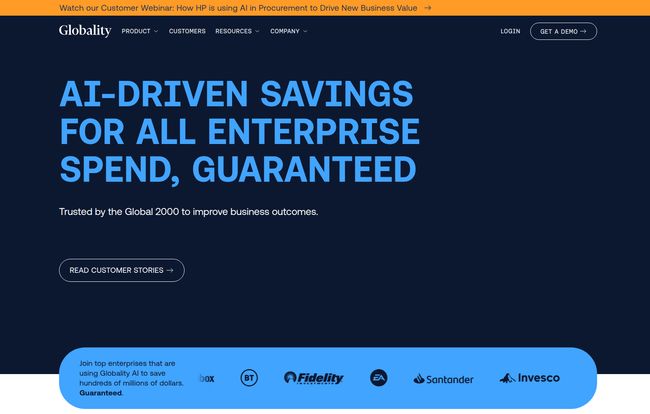
Visit Globality
The Core Features That Actually Seem to Matter
A platform is only as good as its features, right? Here’s what stood out to me from their platform and what I've gleaned from their customer stories.
Autonomous Sourcing with an AI Brain
This is the main event. Instead of you manually writing a huge brief and searching for vendors, Globality's AI—which they call Glo™—does the heavy lifting. It helps you define your project's scope and then intelligently matches you with the best-fit suppliers from its network. It's like having a seasoned procurement expert on staff 24/7, one who has a perfect memory and zero personal bias. The promise is better competition and, ultimately, better value, because you're seeing options you might never have found on your own.
Taming the Monster of Tail Spend
Ah, tail spend. The bane of every CFO's existence. It's all the small, frequent purchases that individually don't seem like much but collectively add up to a massive, uncontrolled cost center. Because it’s so fragmented, most companies just throw up their hands. Globality specifically targets this, bringing all that scattered spend into one place. By giving you visibility, it turns a thousand tiny leaks into a single, manageable stream you can finally get under control. This is a huge, often overlooked, opportunity for savings.
It Actually Plays Well with Your Existing Tools
One of my biggest pet peeves with enterprise software is when it demands you change everything about how you work. It’s a non-starter for most IT departments. Globality seems to get this. They emphasize that their platform integrates with existing enterprise systems (think ERP, P2P solutions). This is smart. It means higher adoption rates and less friction, because it works within the ecosystem your team already knows, rather than fighting against it.
The Big Promise: Guaranteed Savings and Jaw-Dropping ROI
Here’s where Globality really puts its money where its mouth is. They claim some pretty astounding numbers on their site. I'm talking about:
- 15% average cost savings across sourcing events.
- A whopping 20x ROI on services.
- An average of €6.1 million saved on a single strategic sourcing event.
And they have the client list—Fidelity, Santander, BT—to back it up. These aren't small shops; they're the Global 2000. For them, a double-digit saving is monumental. Globality’s confidence comes from its AI's ability to create a more competitive environment and provide negotiation insights. It's not just about finding the cheapest option, but the best value, which is a critical distinction.
Okay, But What's the Catch? A dose of realism
No tool is perfect, and it would be dishonest to pretend otherwise. Based on the nature of this kind of enterprise platform, there are a few practical things to consider.
First, this isn't a cheap plugin you buy with a credit card. There’s going to be an initial investment and a setup period. That's just the reality of enterprise software. Second, while the AI is powerful, you can't just set it and forget it. You still need smart humans to oversee the process, make the final call, and manage supplier relationships. The AI is a powerful assistant, not a replacement for professional judgment. And finally, like almost any modern platform, it uses cookies for personalization. That's a standard trade-off for a customized experience, but something to be aware of.
What's the Price Tag on Globality?
You won't find a pricing page on their website, and that's not surprising. For a platform of this scale, targeting the world's largest companies, pricing is almost certainly customized. It will depend on the size of your company, your annual spend, the level of integration required, and which modules you need. The path forward is the one they make very clear: "Get a Demo." This is where you'll get a custom quote tailored to your specific business needs.
So, Is Globality Right for Your Business?
After digging in, my take is this: Globality isn't for the corner coffee shop or the small startup. It's built for the big leagues—large enterprises, the Global 2000, and any organization wrestling with significant, complex services spend. If your procurement team is drowning in manual work, if you have zero visibility into your tail spend, and if the word "spreadsheet" makes you break out in a cold sweat, then you're exactly who they're trying to talk to.
It's for companies ready to move procurement from a back-office cost center to a strategic driver of business value. If that sounds like a shift your company needs to make, then getting a demo seems like a pretty logical next step.
Frequently Asked Questions about Globality
- What kind of business spend does Globality manage?
- Globality specializes in services spend, which is often more complex than goods. This includes categories like marketing, IT, consulting, legal, and HR services. It's particularly effective for strategic sourcing and managing tail spend.
- How exactly does the AI in Globality work?
- The AI, named Glo™, uses natural language processing to understand your project needs. It then uses machine learning to analyze a vast dataset of suppliers, performance data, and pricing to provide intelligent recommendations and create a competitive bidding environment.
- Is it difficult to integrate Globality with our current systems?
- Globality is designed to integrate with existing enterprise systems like ERP and Procure-to-Pay (P2P) platforms. This is a key feature intended to increase user adoption and ensure it fits within your established tech stack without causing major disruption.
- Who are some well-known companies using Globality?
- Globality is trusted by major global companies. Some of their publicly cited customers include BT, Santander, Invesco, and Fidelity. These are large-scale enterprises that manage billions in spend.
- How can Globality guarantee savings?
- The "guaranteed savings" promise is based on the platform's ability to increase supplier competition, provide data-driven negotiation insights, and uncover efficiencies in the sourcing process. By automating and optimizing the workflow, it consistently finds better value than traditional, manual methods.
- What is "tail spend" and why is it so important to manage?
- Tail spend refers to the 80% of a company's transactions that typically only account for 20% of the total spend value. Because these purchases are small and numerous, they are often unmanaged, leading to significant hidden costs. Managing it provides a major opportunity for savings and efficiency.
Final Thoughts
Look, the world of procurement is changing, and AI is undeniably at the heart of that shift. Platforms like Globality represent a move away from reactive, administrative purchasing toward proactive, strategic sourcing. The idea of turning a cost center into a value-creation engine is powerful. While it's not a magic wand, the combination of AI-powered automation, deep spend visibility, and a focus on real, measurable ROI is compelling. For the right kind of company, this could be less of a tool and more of a transformation.
